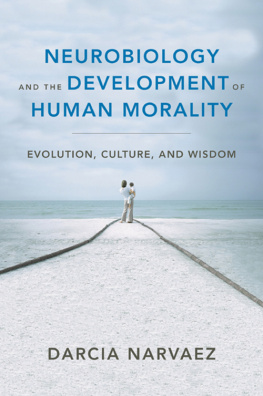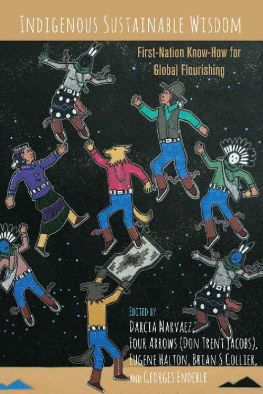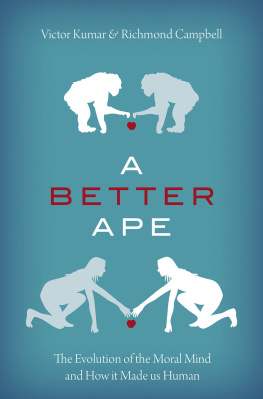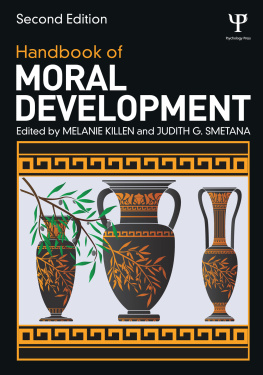
I n the last days finishing this book, a little moth seemed to follow me around in the evenings, from the kitchen to my office upstairs. In the past I would have worried about my woolens and done something to keep it away from themput it outside. But this time I realized that they are not really my woolens but gifts of the earth. Why shouldnt the moth partake of them also? And who was I to say that its life was less valuable? In a world of fewer insects, I was so happy to see Moth. As Moth circled around my head I felt that she was encouraging me to complete the project with courage. May this book be a blessing to all who receive it.s
Self-healing
Soulcraft by Bill Plotkin
Lovingkindness: The revolutionary art of happiness by Sharon Salzberg
L.A.U.G.H. (60 therapeutic, perspective-building, life-changing activities) by Allen Klein
Forgiveness is a Choice by Robert Enright
Living room revolution: A handbook for conversation, community and the common good by Cecile Andrews
Integrative Accounts of Human Beingness and Therapeutic Approaches
Being and Becoming by Franklin Sills
Compassion edited by Paul Gilbert
Ecotherapy: Healing With Nature in Mind by Linda Buzzell and Craig Chalquist
Brain Plasticity
The neurobiology of gene expression by Ernest Rossi
The brain that changes itself by Norman Doidge
The woman who changed her brain by Barbara Arrowsmith-Young
Inherited and Fostered Brain Functioning
The Archeology of Mind by Jaak Panksepp and Lucy Biven
The Master and His Emissary by Ian McGilchrist
A General Theory of Love by Thomas Lewis, Fari Amini and Richard Lannon
Philosophy in the flesh by George Lakoff and Mark Johnson
Human Brains and Development
Affect Regulation and Repair of the Self by Allan Schore
Affect Dysregulation and Disorders of the Self by Allan Schore
The Developing Mind by Daniel Siegel
Affect regulation, Mentalization and the Development of the Self by Peter Fonagy, G. Gergely, E. Jurist & M. Target
Papers and chapters by Colwyn Trevarthen (see reference section)
Humans as Dynamic Systems
The Agile Mind by Wilma Koutstaal
The Biology of Violence by Debra Niehoff
The Sovereignty of Good by Iris Murdoch
Culture and Cooperatiion
A Paradise Built in Hell by Rebecca Solnit
Learning Nonaggression edited by Ashley Montagu
The Spirit Level by Richard Wilkinson and Kate Pickett
The Empathic Civilization by Jeremy Rifkin
Evolution
The Mermaids Tale: Four Billion Years of Cooperation in the Making of Living Things by Kenneth Weiss and Anne Buchanan
Cycles of Contingency edited by Susan Oyama, Paul Griffiths and Russell Gray
The Evolution of Childhood by Melvin Konner
War, Peace and Human Nature edited by Douglas Fry
Essays that Help Connect You to Nature
Aldo Leopold: A Sand County Almanac & Other Writings on Ecology and Conservation edited by Carl Meine
Earth works: Selected essays by Scott Russell Sanders
The art of the commonplace: The agrarian essays of Wendell Berry edited by Norman Wirzba
Braiding Sweetgrass: Indigenous wisdom, scientific knowledge, and the teachings of plants by Robin Wall Kimmerer
Gathering moss: A natural and cultural history of mosses by Robin Wall Kimmerer
Literature and the environment edited by Lorraine Anderson, Scott Slovic and John OGrady
Companions in wonder: Children and adults exploring nature together edited by Julie Dunlap and Stephen R. Kellert
Poetry by Mary Oliver
Poetry and Essays by Gary Snyder
Indigenous World Views (written by non-Indigenous)
Limited Wants, Unlimited Means: A Reader on Hunter-Gatherer Economics and the Environment by John Gowdy
The Perception of the Environment by Tim Ingold
Voices of the First Day: Awakening in the Aboriginal Dreamtime by Robert Lawlor
The Continuum Concept by Jean Liedloff
In the Spirit by Calvin Luther Martin
The Way of the Human Being by Calvin Luther Martin
The Western Illusion of Human Nature by Marshall Sahlins
Critiques of Trends in Western Thought and Alternatives
Beast and Man: The Roots of Human Nature; Science as Salvation; The Solitary Self: Darwin and the Selfish Gene by Mary Midgley
An Inquiry into Modes of Existence by Bruno Latour
The Battle for Human Nature by Barry Schwartz
A Meaning Older than Words by Derrick Jensen
Prosperity without growth: Economics for a finite planet by Tim Jackson
NEUROBIOLOGY AND
THE DEVELOPMENT OF
HUMAN MORALITY
Abdolmaleky, H. M., Thiagalingam, S., & Wilcox, M. (2005). Genetics and epigenetics in major psychiatric disorders: Dilemmas, achievements, applications, and future scope. American Journal of Pharmacogenomics, 5(3), 149160.
Adamec, R. E., Shallow, T., & Budgell, J. (1997). Blockade of CCK (B) but not CCK (A) receptors before and after the stress of predator exposure prevents lasting increases in anxiety-like behavior: Implications for anxiety associated with posttraumatic stress disorder. Behavioral Neuroscience, 111(2), 435449.
Adorno, T. W., Frenkel-Brunswik, E., Levinson, D. J., & Sanford, R. N. (1950). The authoritarian personality. Oxford, UK: Harpers.
Agin, D. (2010). More than genes: What science can tell us about toxic chemicals, development, and the risk to our children. New York: Oxford University Press.
Ainsworth, M. D. S., Blehar, M. C., Waters, E., & Wall, S. (1978). Patterns of attachment: Assessed in the strange situation and at home. Hillsdale, NJ: Erlbaum.
Ainsworth, M. D. S., & Bowlby, J. (1991). An ethological approach to personality development. American Psychologist, 46, 333341.
Aitken, K. J., & Trevarthen, C. (1997). Self/other organization in human psychological development. Development and Psychopathology, 9, 653677.
Alberch, P. (1982). The generative and regulatory roles of development in evolution. In D. Mossakowski & G. Roth (Eds.), Environmental adaptation and evolution (pp. 1936). New York: G. Fischer.
Alessandri, S. M., & Lewis, M. (1996). Differences in pride and shame in maltreated and non-maltreated preschoolers. Child Development, 67, 18571869.
Alexander, M. (2012). The new Jim Crow. New York: New Press.
Alfven, G. (2004). Plasma oxytocin in children with recurrent abdominal pain. Journal of Pediatric Gastroenterology and Nutrition, 38(5), 513517.
Allen, J. G., Fonagy, P., & Bateman, A. (2010). The role of mentalizing in treating attachment trauma. In R. A. Lanius, E. Vermetten, & C. Pain (Eds.), The impact of early life trauma on health and disease: The hidden epidemic (pp. 247256). New York: Cambridge University Press.
Allman, J. M., Hakeem, A., Erwin, J. M., Ninchinsky, E., & Hof, P. (2001). The anterior cingulate cortex: The evolution of an interface between emotion and cognition. Annals of the New York Academy of Sciences, 935, 107117.
Altman, N. (2007). The oxygen prescription: The miracle of oxidative therapies. Rochester, VT: Healing Art Press.
Amaral, D. G., Price, J. L., Pitkanen, A., & Carmichael, T. (1992). Anatomical organization of the primate amygdaloid complex. In J. Aggleton (Ed.),
Next page







